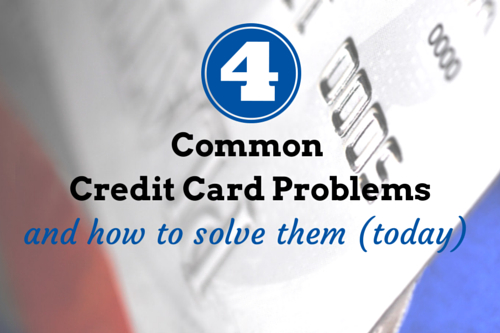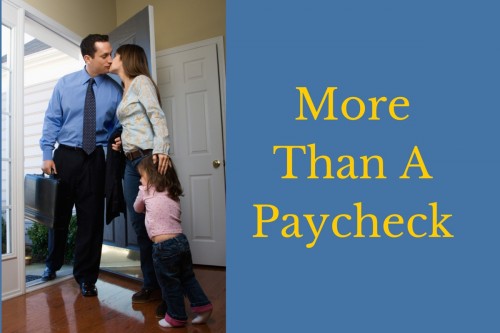

We talk a lot around here about how to get out of debt, and if you’re working towards financial freedom, keep it up!
But, don’t forget to dream.
The road to financial peace can be a long and difficult one, and it’s important to have a vision for the future so you don’t get discouraged and burned out along the way. With that in mind, take a minute to think about exactly what you’ll do once you’re finally debt free. And check out some of these ideas for inspiration. We have a mix of the fun and the practical, so there should be something for everyone.
Keep busting that debt, and keep dreaming!
Continue reading

Financial Automation To Reach Your Goals
Automation. It is really quite the buzz word these days. It seems it will either eliminate jobs or be the key to our next phase of economic success. That of course is not the focus of our conversation today.
Automation here means creating rituals that lead you directly toward your financial goals.
A little effort today will help enrich your tomorrow without adding the stress that comes with financial planning. It starts with you picking targets and finding a way to reinforce them mechanically.
Done correctly, you will barely notice the change.
No matter what stage of financial health you find yourself in, setting goals is part of the healing process. Jeremiah 29:11 says, “For I know the plans I have for you, declares the Lord, plans to prosper you and not to harm you, plans to give you hope and a future”; Finding automatic ways to support your financial life takes you one step closer to God’s plan.
Don’t Make this Big Post-Debt Mistake
The poor are always ruled over by the rich, so don’t borrow and put yourself under their power. –Proverbs 22:7 (The Message)
If you’re currently in debt (or ever have been), there’s a good chance you’ve daydreamed about the day you can declare yourself debt free. I know I have. In fact, dreaming about your financial future can be a good thing.
What comes to mind when you think about the day you’ll finally kiss your last debt goodbye? Maybe it’s a long-awaited family vacation, a celebratory dinner, or a big contribution to your savings account.
Continue reading
6 New Year’s Resolutions for Financial Freedom
One thing I’ve learned about New Year’s Resolutions is they better be specific.
It sounds nice to resolve to “be healthier” or “be more responsible with money,” but ideas that vague are likely to yield vague results…or no results at all.
If you’re the resolution type, make sure your goals are specific and measurable. And write them down. I’ve heard it said that a written plan is the difference between a dream and a goal. So don’t just dream this year—set a goal and achieve it.
Here are a few suggestions for those determined to get on financial track in 2015. Don’t try every one of these. Pick one or two of them and follow through.
I resolve to…
Create a zero-based budget and stick to it
Zero-based just means that every dollar you make has a destination. Whether you’re spending it, saving it or giving it away, you should not have any money just chilling in your checking account. Put all of your money to work so you can meet your goals faster.
Bump up my church giving by at least 1 percent
If the idea of tithing intimidates you, or your finances are still a little shaky, it’s OK. Just start somewhere and refuse to allow your giving to become stagnant.
Pray at least once a week about how to use my God-given gifts
The Bible has a lot to say about how we handle money. It’s well worth a few minutes of prayer to help ensure we’re using it the way God wants.
Not make any major purchase without waiting 30 days
Let this be the year you kick that impulse buying habit. A lot can happen in 30 days. Someone could give you the very thing you thought you needed to buy. It could go on sale. You could have a family emergency and end up very thankful you didn’t buy it right away. Or, as is the case most often in my household, you could realize you just don’t need it after all.
Automate my savings contributions
You probably automate everything else; why not your savings? Choose to stop viewing your savings contributions as optional and instead, treat them like another bill. Schedule a fixed amount to come out of each paycheck before you ever touch it, and watch how quickly your nest egg grows over the next year.
Never use a credit card without paying the balance immediately
The biggest, single step towards becoming debt free is simply not getting into any more debt! If you have a bad credit card habit, now’s the time to kick it to the curb. This may mean cutting up your cards and only using debit for the rest of your life. Or you may find you can handle hanging onto one or two cards and using them properly, which means never, ever carrying a balance. Not even 5 bucks. Not even for a week. It’s a slippery slope, so don’t even go there.
What other specific, measurable financial resolutions can you come up with to make it a truly happy New Year?
6 Ways to Simplify Your Financial Life
If dealing with your finances feels like a chore, it may be time to simplify. Here are six suggestions you can use today. Hopefully they’ll help you spend less time thinking about money and more time doing the things you love.
Auto pay everything
Aside from attacking our debt, registering all of our accounts for auto pay is the best thing my husband and I have done for our financial life. Our utilities, streaming services, donations, insurance and one remaining student loan payment are deducted automatically from our bank account each month. We don’t even think about it. The only thing we pay the old fashioned way is rent, and it’s a whole lot easier to remember one payment a month than half a dozen. Many people also find success with automating a savings plan, which creates a nest egg with little or no thought.
Have joint accounts
If you’re married, having a joint checking account is a good idea for several reasons. First, the simplicity is helpful. All income can be automatically deposited into the same place, where it can be distributed wherever needed. There’s no need to worry about “his” and “hers” budgets or shuffling money from one account to another. Joint accounts are also good for accountability. Both partners know exactly how much money is coming in and going out, which can prevent a lot of arguments.
Create a monthly budget
Some people like weekly budgets; others prefer to do a daily budget check. You need to choose whatever works best for you, but I’ve found that thinking about finances every day can become a real burden. Budgeting on a monthly basis can save time and stress.
Keep important info in one place
Whether you keep a computer spreadsheet or a paper copy of your records, make sure everything is in one location. I use a small binder of 3×5 index cards—one for each bank account, credit card, utility bill, giving statement, etc. Account numbers, passwords and any other pertinent info are in one spot, so my husband and I can both find whatever we need without digging around. This is especially helpful around tax time.
Skip the extra credit cards
Collecting airline miles on one card, hotel points on another, and cash back on yet another can be more of a headache than a money-saver. If you divide your spending power over multiple cards, you’re not going to get very far with any rewards program. You’re also giving yourself the hassle of tracking multiple accounts and increasing your chances of missing a payment. Have you ever met anyone who got rich off of reward points or 2 percent cash back? Me neither.
Use mobile banking
I recently downloaded my bank’s mobile app, and I love it. I can check our balance, transfer money and deposit checks into our account with a photo and the touch of a button. It’s a big time and gas saver since I have no reason to go to the bank anymore. Now, if only my phone could print out cash. Then we’d really be in good shape!
I’ve heard it said that there’s a difference between “simple” and “easy.” The steps to getting and staying out of debt are simple, but they’re not easy. If they were, everyone would be debt free.
Here’s another truth about financial freedom: it takes more than willpower. Maybe you’re struggling to get (or stay) on financial track. Or maybe you’re doing pretty well but could use a little boost to propel you to the next level. If that’s the case, check out these five tips and be inspired to take that extra step toward financial peace.
Have an accountability partner
We’ve posted about the importance of having a “foxhole friend” to keep you accountable when it comes to spending habits and financial goals. If you’re married, the natural choice is probably your spouse, but it’s also a good idea to have a friend or another couple to keep you on the straight and narrow.
This doesn’t mean revealing your salary, your 401(k) balance and every little detail of your budget. It’s about finding encouragement, seeking wise counsel, and having someone in your life who isn’t afraid to say, “no” to frivolous purchases and bad financial choices.
Post goals and reminders where you’ll see them often
There’s something powerful about speaking a goal out loud. It makes it real. Equally powerful, I believe, is the act of writing (or typing) out your goal.
Do you want to be debt free by next Christmas? Write it down.
Do you want to save $40,000 to put down on a house? Write it down.
Post a sticky note where you’ll see it. Use your calendar app to remind yourself to take action. Whatever you do, make it concrete and visible.
Be part of a small group
Whatever challenge you may be facing, it’s important to remember you’re not alone. But sometimes we have no way of knowing someone else has gone through the same thing we’re experiencing unless we fess up and put ourselves out there.
Make it a priority to get involved in some kind of small group or Bible study. Many churches also offer financial education classes, which is a great way to learn about a biblical view of money while meeting others who are in the same boat. You can share ideas and help each other reach your goals faster.
Create space for a daily “quiet time.”
If you have financial problems, chances are they didn’t just fall out of the sky. There are underlying beliefs and habits that led to the problems.
So, how do we change our attitudes and fix what’s broken? Through daily, intimate time with God.
Whether you have to wake up 30 minutes earlier, find a quieter lunch break spot or skip a TV show, do what it takes to make time with God a priority.
Dive into the Bible.
Journal.
Pray.
It’s amazing how a few minutes spent communing with God can change us from the inside out.
Track and celebrate your progress
Nothing is quite as motivating as a win. When I’m working to lose weight and I see that I’ve dropped a couple of pounds since my last weigh-in, I get an extra pep in my step, and I’m motivated to work even harder. The same is true for most of us when it comes dropping debt or hitting a financial goal.
Track your progress carefully and don’t let a win slip by without some kind of recognition. We’re more likely to keep on pushing when we mark our successes and celebrate them well.
The celebration doesn’t have to be lavish; the simple act of pausing to recognize an achievement can go a long way.
So, are you ready to get that next win?
Go!







